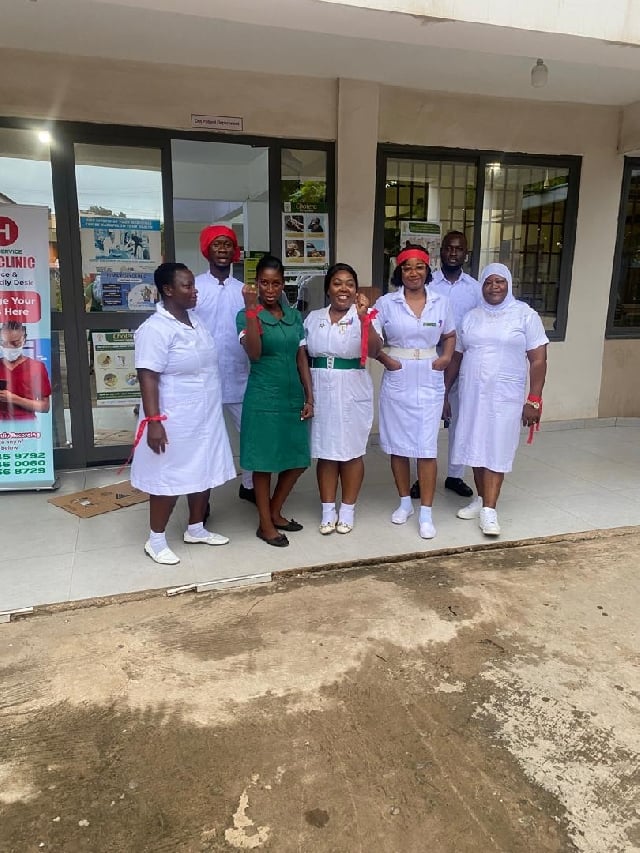The Ghana Registered Nurses and Midwives Association (GRNMA) in the Upper East Region of Ghana has initiated an indefinite strike, commencing on Monday, June 2, 2024. This action stems from the government’s failure to implement the 2024 Collective Agreement, a negotiated document outlining terms and conditions of service, including salary adjustments, allowances, and other benefits crucial for the welfare of nurses and midwives. The GRNMA argues that this delay significantly impacts the livelihoods of its members and compromises the quality of healthcare services delivered across the country, particularly in the Upper East Region, where access to healthcare is often limited. The strike action is being rolled out in phases, designed to escalate pressure on the government while minimizing immediate disruption to essential healthcare services.
The initial phase of the strike involves a symbolic protest. Nurses and midwives are donning red armbands and headbands to visually demonstrate their discontent and raise public awareness about their grievances. This symbolic action serves as a warning and a call for dialogue with the government. The GRNMA hopes that this initial display of solidarity will prompt the government to reconsider its position and expedite the implementation of the Collective Agreement. This visual representation of their concerns is intended to resonate with both the government and the public, emphasizing the seriousness of their demands.
The second phase, scheduled from June 4th to June 8th, involves the suspension of all Out-Patient Department (OPD) services. This targeted action aims to exert more significant pressure on the government while still allowing for the provision of emergency and inpatient care. The suspension of OPD services will undoubtedly cause inconvenience and delays for patients seeking non-emergency care, but it also aims to demonstrate the vital role nurses and midwives play in the daily functioning of healthcare facilities. The disruption caused by the suspension of OPD services underscores the importance of resolving the impasse promptly.
Should the government fail to address the GRNMA’s demands by June 9th, the strike will enter its final and most impactful phase: a complete withdrawal of services. This means that nurses and midwives will cease all work activities, including emergency care and inpatient services. This escalation represents a last resort and highlights the depth of the GRNMA’s frustration with the government’s inaction. The potential consequences of a full-scale withdrawal of services are severe, potentially leading to the collapse of essential healthcare delivery in the Upper East Region. This drastic measure underscores the urgency of the situation and the GRNMA’s commitment to securing a fair and timely resolution.
The GRNMA’s decision to embark on industrial action follows a meeting with government officials on Friday, May 30th, which failed to yield a satisfactory outcome. The union leadership expressed disappointment with the government’s response, characterizing it as inadequate and failing to address the core issues outlined in the Collective Agreement. This perceived lack of commitment from the government ultimately led the GRNMA to conclude that industrial action was the only remaining option to ensure their voices were heard and their demands were met. The unproductive meeting served as a catalyst, solidifying the union’s resolve to proceed with the planned strike.
The strike is already triggering significant concern among healthcare stakeholders. The potential disruption of healthcare services, especially in rural and underserved communities where public health facilities are the primary source of care, poses a substantial threat to public health. The GRNMA emphasizes that the responsibility for averting a healthcare crisis rests squarely with the government. They urge the government to demonstrate good faith by swiftly implementing the 2024 Collective Agreement, thereby ensuring the well-being of nurses and midwives and safeguarding the health of the population. The GRNMA maintains that a timely resolution is crucial not only for their members but for the entire healthcare system in the region.


